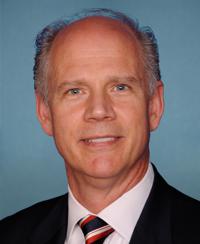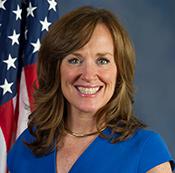0
Flood Insurance Transparency and Accountability Act of 2015
1/11/2023, 1:29 PM
Congressional Summary of HR 4107
Flood Insurance Transparency and Accountability Act of 2015
This bill amends the National Flood Insurance Act of 1968 (NFIA) to direct the Federal Emergency Management Agency (FEMA) to declare that the final engineering report of an on-site property inspection conducted by an engineer to assess claims for losses covered by a flood insurance policy:
- may not be transmitted to any other person, employer, agency, or entity before it is transmitted to the insured;
- may not include alterations by anyone other than the person responsible for the report; and
- shall be transmitted to the insured in a manner giving reasonable assurance that it is transmitted directly to the insured by the responsible person in charge.
The bill prescribes the manner in which such reports (including any adjustment and field reports) shall be transmitted to the insured.
The bill revises the statute of limitations for appealing a disallowed claim for judicial review. The current limit of one year after the mailing date of FEMA's notice of disallowance or partial disallowance is repealed. The statute shall be extended to two years after the occurrence of the losses involved in a claim.
If FEMA, or an insurance company denies any claim for losses that is appealed to FEMA, the claimant may institute an action in U.S. district court not later than the later of: (1) the expiration of the 90-day period beginning the date of a final determination upon appeal denying such claim in whole or in part, or (2) the expiration of the 2-year period after the occurrence of the losses.
The Homeowner Flood Insurance Affordability Act of 2014 is amended to require the Flood Insurance Advocate to provide a direct point of contact for policyholders under the National Flood Insurance Program to discuss the status of their claim appeals and the basis of the initial decision to deny their claims.
The NFIA is further amended to require FEMA to conduct an annual review of each private entity participating in the Program, including any company that has contracted with a Write Your Own insurance company to provide any service related to a policy or claim under the Program, including adjusting, engineering, and legal services, to ensure compliance with FEMA policies and procedures to prevent fraud and protect policyholders.
A Write Your Own means the cooperative undertaking between the insurance industry and the Federal Insurance Administration which allows participating property and casualty insurance companies to write and service standard flood insurance policies.
FEMA shall also: (1) create and maintain a publically searchable online database that includes specified information regarding claims filed under the Program, and (2) establish guidelines and standards to require that any engineering or litigation cost billed to the Program by a Write Your Own insurance company is justified on a case-by-case basis.
A claim for damage to or loss of property shall not be denied based on the exclusion of earth movement (earthquake, volcanic eruption, landslide, sinkhole, mudflow, or shock wave) in the Standard Flood Insurance Policy if the claim is filed as the result of a flood, including a claim for damage to or loss or property caused by earth movement caused by a flood.
The Bunning-Bereuter-Blumenauer Flood Insurance Reform Act of 2004 is amended to require FEMA to ensure that: (1) the appeals process has clear rules, forms, and deadlines; (2) these are given to a claimant at the time a claim is first denied; and (3) the policyholder's legal options are explained upon denial of appeal.
The Department of Homeland Security shall report to Congress on specific actions it will take to:
- identify individuals and private entities that have engaged in activities to defraud policyholders under the Program following Superstorm Sandy, and
- prevent those individuals and private entities from continuing to receive federal funding.
FEMA shall report to Congress regarding National Flood Insurance Program Transformation Task Force recommendations for reforming the Program, and a timeline for implementing them.

